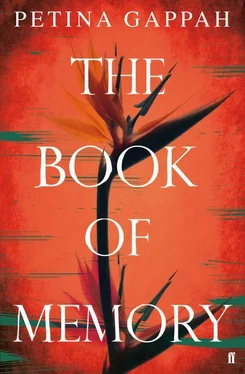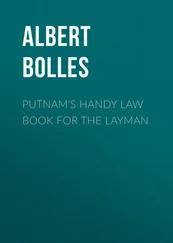
In the time that I have been here, I have come to know well this formatted place, its long corridors and narrow cells. The Condemn, where we bleed our fingers on blunt needles as we try to restore to wearability the uniforms that should have been thrown out a long time ago; the laundry, where we wash and iron the guards’ clothes; the ablution block, where we wash our bodies in basins meant for faces; and the canteen, where the infernal din of four hundred spoons scraping against four hundred metal plates accompanies every meal.
For reasons that will be obvious to you, we are not allowed forks and knives. But nor are we allowed to use our hands like normal people. We eat all our food with tablespoons, everything from the waterlogged porridge to the lump-filled sadza and the cabbage that smells of sweat. I have even learned to use a spoon to cut into the slime-brown rubber that the guards, in a simultaneous combination of euphemism and optimism, give the name of meat.
There is no happy medium to our food; it is either overcooked or undercooked, or it has too much salt or not enough, or there is not enough oil in the fried vegetables or there is so much that you almost fear that America will invade. And like the food at the Jewish wedding of the joke, our food is almost inedible, but there is never enough of it.
We march from the canteen to the grounds, from the laundry to the Condemn, a regulated army in our green dresses and, when it is cold, red-and-white-striped jerseys with matching socks. In the winter months, the prison looks as though Dr Seuss has run riot through it with his Cat in the Hat inks.
Every aspect of our lives, from where and how we sleep to what we eat and how fast we eat it, from how much water to how much toothpaste we use, is chosen for us.
Our companions, our words, our very thoughts and dreams, are not ours to choose but are given to us from the sixth floor of the New Government Complex. We live on rations. Each woman has only half a roll of toilet paper, if that, twenty-five millilitres of toothpaste a week and four and a half sanitary pads a month. And it is half a pad, cut neatly down the middle, complete with a dangling wing. It is all written down somewhere, in some statutory instrument or other. Vernah Sithole can probably tell you the precise number.
If the products run out before the next allocation, we make do with what is there. So we use newspapers for tissue, or any other printed material. There was a huge commotion when Synodia conducted an inspection in Block C and found pages of the Bible mixed in with the leavings in the toilet bucket that we call gamashura , or the Catcher of Wonders. After she saw pages from the Proverbs and Psalms and the First Letter to the Corinthians mingled in with other wonders, she gave us a two-hour sermon in which her voice reached a pitch of such anger that she found herself unable to speak. Better than the sermon, though, she authorised more toilet rolls.
In the endless moments that I spent in the cells at Highlands police station, I did not imagine that I could ever be in a worse place. That was before Chikurubi. As it turns out, hell is other people, especially when those other people are your fellow women prisoners and there has been no water for a week and flies are buzzing over the gamashura and the only ablution possible is to run a dry towel across your body, hoping that the dirt and smell that cover you will somehow be absorbed by as inadequate an object as a prison-issue towel with a visible thread count.
I should be accustomed now to the strange rhythms of the jail, but it seems the two years that I have been here are not yet enough to make me used to the distorted sense of time. Rising at four thirty. Breakfast at six, followed by chores and lunch at eleven in the morning. This is followed by more chores.
The prisoners allowed outside go to the farm, where they hoe and weed and tend the vegetables meant for our table, but which go to the guards. I spend almost all my time with the other offenders in ‘D’ section. Of the four hundred-odd women in the prison, we are considered the most dangerous inmates — our sentences are the longest; we need the most watching. In the men’s prison, they call the longest-serving prisoners the ‘staff’. There are so few of us here that we do not qualify as staff.
‘A’ is for the remand prisoners who were refused bail. The main distinction between them and us is that they can wear their hair as they please, except that no weaves are allowed, lest they dim the glory of Synodia’s fake-hair weaves. They spend much of their time outside. ‘B’ is for the petty thieves, the pickpockets, shoplifters and drunken brawlers with less than two years to serve. ‘C’ is for the majority of prisoners here who have more than two but less than five years to serve.
‘D’ is for Dangerous, for Deadly, for Death.
There are fourteen of us in D at the moment, women from all over the country: Mavis Munongwa, Nomvula Khumalo, Ellen Gumbo, Ruvimbo Mherekuvana, Benhilda Makoni, Manyara Makonese, Sinfree Mapuntu, Evernice Gundani, Jimmy Blue Butter, Verity Gutu, Monalisa Mwashita, Beulah Shereni, Esnath Matema, and me, the only woman on death row.
Mavis Munongwa has been here longer than anyone, even the guards. She is the only other woman in here for murder, but she is not on death row. She poisoned her brother’s young children, two boys and two girls. They were all under the age of twelve.
Esnath Matema was a housemaid in Mount Pleasant. She lived in the same quarters as the gardener of the house, who was also her father’s brother. After they had sex, she fell pregnant. When the baby came, they strangled it and buried it in a shallow grave in the grounds of the university. Unable to live with what they had done, she confessed the truth to their employer. When their case to came to trial, she was charged with incest and infanticide. Her uncle was convicted of incest and murder.
As Vernah can tell you, when a mother kills her own baby it is infanticide. If the same child were to be killed by a man, even where the man is the father of the child, it would be murder. The judge found no extenuating circumstances in her uncle’s case. He is on death row.
In the night, when it is still, we sometimes hear the men from the male section singing away dead prisoners. When they raise their voices, and the air trembles with songs of sorrow, we know that a prisoner has died. Every time the songs reach our section, Esnath screams in the terror that her uncle is dead.
Nomvula is in for culpable homicide. She and her boyfriend were in a car that knocked over and killed a cyclist in Enthumbane Township in Bulawayo. She says she wasn’t the driver, that it was her boyfriend who was behind the wheel. They had been driving back from inspecting the venue where they had hoped to have their wedding. She only agreed to say that she had been driving because her boyfriend had asked her to. She would get a lighter sentence than him, he said, because she was a woman. She would probably just get a fine.
She got five years.
He married someone else.
Ellen is blind in one eye. She has a gash on her cheek. Her husband did that to her. Synodia calls her ‘small house’, the derogatory term for a woman who is somewhere between a mistress and a spare wife. Only the wealthiest men have small houses. Ellen was the mistress of a man who was seeing other women. She seduced a homeless man to use his semen for medicine. She hardly ever speaks, and until you see her staring out of her good eye, you hardly remember that she is there.
Читать дальше













